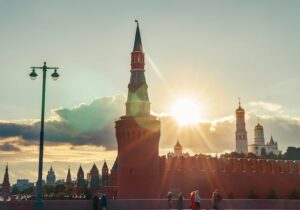Are you considering obtaining Russian citizenship or perhaps wondering if you are eligible? Russia is the world’s largest country, but becoming a Russian citizen is a challenging task requiring many procedures. This blog post will guide you through apply for Russian citizenship and discuss its requirements.
Whether you are considering moving to Russia to become a Russian citizen or are simply interested in learning more about Russian citizenship, this guide will provide valuable insights.
Benefits of Russian Citizenship

Here’s an in-depth look at the benefits and privileges you access when you acquire Russian nationality:
Travel visa free: One of the significant benefits of obtaining citizenship in the Russian Federation is the ability to visa free destinations worldwide, in addition to no restrictions on entering Russia. Russian citizens can access many countries that allow entry without a prior visa or with a visa on arrival. This includes countries like Brazil, Belarus, Cuba, Montenegro, and Turkey.
Access to the Eurasian Economic Union (EAEU): Russian citizens enjoy enhanced mobility within Eurasian Economic Union member states, including Armenia, Kazakhstan, and Kyrgyzstan. Like the European Union, the EAEU allows more accessible travel, work, study, and business opportunities within these nations.
Consular protection and assistance: Holding Russian passports grants consular protection and assistance from any Russian Embassy or Consulate worldwide. In emergencies, such as lost passports or legal issues, you can seek assistance and guidance from Russian consular officers, ensuring that Russian citizens have support and representation when they travel abroad.
Electoral rights: Russian citizenship grants individuals the right to participate in the country’s electoral process, allowing them to exercise their democratic rights. Citizens can vote in various elections, including presidential, parliamentary, and local elections. This fundamental right empowers Russian citizens to have a say in shaping the country and policies of their nation.
National identity and cultural connection: Russian citizenship symbolizes your connection to Russia’s rich history, culture, and traditions. You can proudly identify as a citizen of Russia, fostering a sense of national pride and belonging.
How to Obtain Russian Citizenship
Russian citizenship combines elements of jus soli and jus sanguinis. The Russian Federation provides citizenship by descent for persons born to Russian parents, marriage to a Russian citizen, naturalization, and persons who provide exceptional services to the Russian Federation.
 Russian citizenship by birth
Russian citizenship by birth
Although there are elements of jus soli within the right to Russian citizenship acquisition, citizenship law for jus soli is not universal. It applies only to those born in Russia in specific circumstances. Russian citizenship by birth can be acquired if:
- Born in Russia to at least one Russian parent who held citizenship at the time of birth
- Born in Russia to foreign parents or stateless persons and cannot obtain their parents’ citizenship
 Russian citizenship by descent
Russian citizenship by descent
The primary manner Russians obtain citizenship is through qualifying Russian family members. As per Russian citizenship law:
- If both parents were Russian citizens at the time of birth, the child acquires Russian citizenship automatically
- If at least one parent was Russian at the time of birth and the other foreign parent was stateless, declared missing, or their whereabouts are unknown
 Russian citizenship by marriage
Russian citizenship by marriage
Citizenship by marriage is a common way individuals acquire Russian citizenship. A foreign national with a Russian citizen spouse is eligible for citizenship, whether they’re foreign residents living in Russia or abroad if they’ve been married for three years or more. Russian citizenship by marriage follows the simplified process of obtaining citizenship in the Russian Federation.
 Russian citizenship by naturalization (common process)
Russian citizenship by naturalization (common process)
You can apply for naturalization if you do not qualify for Russian citizenship by birthright. To be eligible, you must meet the following criteria:
- Be at least 18 years old
- Have lived in Russia for at least five years on a valid Russian permanent residence permit
- Have a clean criminal record
- Be fluent in Russian
- Have basic knowledge of Russia’s culture, history, and the Constitution
- Have a stable source of income and support yourself and your family members
 Russian citizenship by naturalization (simplified process)
Russian citizenship by naturalization (simplified process)
If you meet specific criteria, you may be eligible for the simplified process to obtain citizenship in Russia. The following foreign citizens qualify for the simplified process:
- Foreign nationals who have served in the Russian army
- Foreign citizens who have made significant contributions to the Russian culture, science, or its economy
- Foreign nationals who are considered native speakers of Russian
The requirements for the simplified process are less strict compared to the standard process. For example, the residency requirement to acquire Russian citizenship through naturalization is reduced to three years instead of five, and the language requirement may be waived.
 Restoration of citizenship for former Russian citizens
Restoration of citizenship for former Russian citizens
If you previously had Russian nationality and gave up your original citizenship, you may be able to restore your Russian citizenship. To be eligible, you must meet the following criteria:
- You must have voluntarily given up your Russian nationality
- You must be fluent in Russian
- You must have knowledge of Russian culture, history, and the Constitution
- You must not have committed any crimes that would disqualify your right to citizenship
Applications for the restoration of citizenship require a copy of a previous Russian passport or citizenship certificate submitted to the Russian Ministry of Internal Affairs.
Russian Residency by Investment

A foreign citizen who invests at least 10 million rubles (about $110,000) in Russian businesses or real estate investment can obtain a renewable residence permit. There are five qualifying investments with different thresholds to obtain a Golden Russian Visa:
- Entrepreneurship: Requires growing the capital of a Russian corporation by 15 million rubles (about $160,000). If the company is a foreign firm with operations in Russia, the required investment is 50 million rubles (about $550,000)
- Investing in a new business: Requires investing at least 10 million rubles in new Russian business and creating at least ten local jobs.
- Investment in an existing Russian firm: Requires investing at least 10 million rubles in an existing business in Russia operating for at least three years. Additionally, the firm must pay 6 million rubles or more in taxes and employ at least 25 people.
- Investment in government bonds: Requires purchasing Russian government bonds worth at least 30 million rubles (about $330,000).
- Real estate investment: Requires a minimum real estate investment of 30 million rubles.
The law requires foreign investors to prove they will not need financial support and to hold their investments for at least three years to maintain a valid temporary residence permit. This is in contrast to many other countries with investment visa programs, requiring investments to be held for at least five years. However, there are government quotas limiting the number of foreign citizens who can apply for a Russian work visa or other types of temporary residence permits as well as permanent residency in the Russian state.
How to obtain Russian permanent residency?
Permanent residency in Russia has a short minimum residency period. You become a Russian permanent resident after legal residence with a temporary residence permit for at least two years. This applies whether you obtained a residence permit through investment or a work permit; however, there is a yearly quota for permanent residence permits.
Requirements for Russian permanent residency
A Russian permanent residence permit in Russia and the right to legally reside in Russia for an unlimited period is available to foreign citizens who meet one of the following criteria:
- A relative of a Russian citizen, such as a spouse, parent, or child
- Have legally resided in Russia continuously for at least two years
- Has invested at least 10 million rubles in the Russian economy
- Has graduated from a Russian university or has completed a vocational training program in Russia
How to Apply for Russian Citizenship
To apply for Russian nationality, you must submit your application to the Ministry of Internal Affairs. The application process can take several months to complete, and you will be required to attend an interview and take a test on Russian culture, history, and the Constitution.
The required documents for Russian citizenship will vary depending on your grounds for qualification. According to Russian law, when applying for Russian citizenship by naturalization, you – a foreign citizen, must submit the following documents to the Ministry of Internal Affairs:
- A completed application form
- A valid passport with a Russian residence permit
- A certificate of HIV-negative status
- A medical certificate stating that you do not have any infectious diseases
- Proof of financial sustenance (if applicable)
- A rental agreement or proof of property ownership in Russia (if applicable)
- A police clearance certificate from your home country
- A certificate of Russian language proficiency (if applicable)
Russian citizenship application process
1. Determine your eligibility: Before applying, ensure that your grounds for obtaining citizenship in Russia. If you have non-Russian parents, you will need your Russian birth certificate and documentary proof that you are ineligible to receive your parents' citizenship or that they're stateless. |
2. Gather required documents: Collect all the necessary documents per your chosen method under Russian nationality law. Supporting documents include: • Your Russian parent’s birth certificate In addition to proof of your claim to citizenship in Russia, you will need to present additional documentation such as: • Proof of a clean criminal record |
3. Complete application form: Obtain a Russian citizenship application form from the relevant authority in Russian or your nearest Russian Embassy or Consulate if you live abroad. |
4. Submit your application: Depending on your circumstances, you can submit your application in Russia or to a Russian Consulate if you live abroad. Ensure that you provide all required and supporting documents with the application form. |
5. Pay application fees: Be prepared to pay the applicable application processing fees. These fees can vary depending on your chosen method and may change over time. |
6. Attend interviews and Russian language tests (if required): For certain pathways, like naturalization, you will need to demonstrate Russian language proficiency and sufficient knowledge of Russian history. |
7. Await processing: The processing time for your application can vary depending on your circumstances and the workload of the authorities. |
8. Attend citizenship ceremony: If your application is approved, you may be invited to attend a citizenship ceremony. This is a formal event where you declare allegiance to the Russian Federation |
9. Receive your certificate of Russian citizenship: After completing the application process, you will receive an official document or citizenship certificate in Russia. This certificate is essential for various administrative purposes. |
10. Apply for a Russian passport (if desired): Once you become a Russian citizen, you can apply for Russian travel documents. It’s important to note that the specific requirements and procedures can vary based on your chosen method and individual circumstances. |
Russian Citizenship Processing Time
The time to complete a Russian citizenship application process varies depending on the grounds for acquiring citizenship in Russia. For those under 14 with two Russian parents, the processing time is as little as one month. The average processing time is six months for those 14 to 18 or with only one parent holding Russian citizenship.
The processing time to grant Russian citizenship by naturalization takes about six months, provided applicants submit the necessary documents to support their applications.
Russian Dual Citizenship
Does Russia accept dual citizenship? This is a complicated topic. Generally speaking, the Russian Federation does not allow dual citizenship; however, based on dual citizenship agreements, citizens of specific countries may maintain their previous citizenship and hold Russian citizenship.
Russian dual citizenship treaties exist with Turkmenistan and Tajikistan. Russia has an intergovernmental agreement signed with Turkmenistan and Tajikistan that can be considered, allowing citizens of all three countries to become dual citizens. Qualifying applicants must inform the Russian General Directorate of Migratory Affairs of their desire to acquire dual nationality within 60 days.
How to get a Russian passport?
You can apply for a Russian passport by completing the following steps:
- Acquire citizenship in Russia: Before obtaining a Russian passport, you must become a Russian citizen.
- Gather required documents: Collect the necessary documents required for your Russian passport application. These typically include your Russian citizenship certificate.
- Complete the passport application form: Obtain a Russian passport application form from the relevant authority in Russia or the Russian Consulate in your home country.
- Provide recent passport photos: Attach recent passport-sized photos that meet the specific requirements outlined in the application guidelines.
- Pay the passport fee: Pay the required passport application fee. The cost can vary depending on your age and which country you submit your application.
- Submit your application: Submit your completed passport application, the necessary documents, and fee payment to the appropriate authority.
- Await processing: The processing time for Russian passports can vary. It may take several weeks to receive your new passport.
Collect your passport: You’ll be notified to collect it once it is ready. You must visit the designated location in person to receive your passport.
Frequently Asked Questions about Russian Citizenship
How can I get citizenship in Russia?
To obtain Russian citizenship, you can do so through birth, descent, marriage, or naturalization through an ordinary or simplified process, depending on your citizenship. If you were subject to Russian citizenship deprivation, you may be entitled to the restoration of your Russian citizenship.
Does Russia allow dual citizenship with the UK?
Russia does not allow dual citizenship. You must renounce your foreign citizenship of your home country to obtain citizenship in Russia. Only citizens of just two countries – Tajikistan and Turkmenistan – can obtain Russian dual citizenship.
How to renounce Russian citizenship?
To renounce Russian citizenship, you must apply to the Russian Ministry of Internal Affairs of Russia, provide proof of citizenship in a foreign country or the right to obtain it, and pay a fee.
What do you need to get Russian citizenship?
To get Russian citizenship, you typically need to meet residency requirements, have a good command of the Russian language, pass a test on Russian history and law, and provide various documents, including a birth certificate and passport.
How do you get US citizenship for a Russian spouse?
To get US citizenship for a Russian citizen spouse, the spouse must first obtain a green card and meet residency requirements. They can then apply for US citizenship after meeting additional eligibility criteria, such as passing an English and civics test. Be advised that Russia does not allow dual citizenship with the United States, and Russians will lose their Russian citizenship when they acquire American citizenship.
What is the new Russian citizenship law?
On 26 October 2023, a new citizenship law for foreign and Russian nationals was introduced by the Russian Federation. Work on the new legislation began in December 2021, and the Russian President formally approved it in April 2023. The new law includes:
- Simplified protocols for disclosing foreign citizenship or permanent residence
- Revisions to citizenship pathways and the deprivation of Russian citizenship
- Faster processing durations for citizenship applications
Is Russia systematically forcing Ukrainians to accept citizenship?
There have been reports of Ukrainian citizens living in Russian-occupied territory being forced to replace their Ukrainian citizenship with Russian citizenship or face possible deportation or detention. This coercive measure raises serious concerns about the infringement of Ukrainian citizens’ rights and the broader geopolitical implications.
Do you have to speak Russian to become a Russian citizen?
Speaking Russian is part of the requirement for obtaining Russian citizenship by naturalization. Foreign citizens who are native Russian speakers can apply for citizenship of the Russian Federation through a more straightforward process, which includes eligibility for those who have lived in Russia for three years instead of five years.




